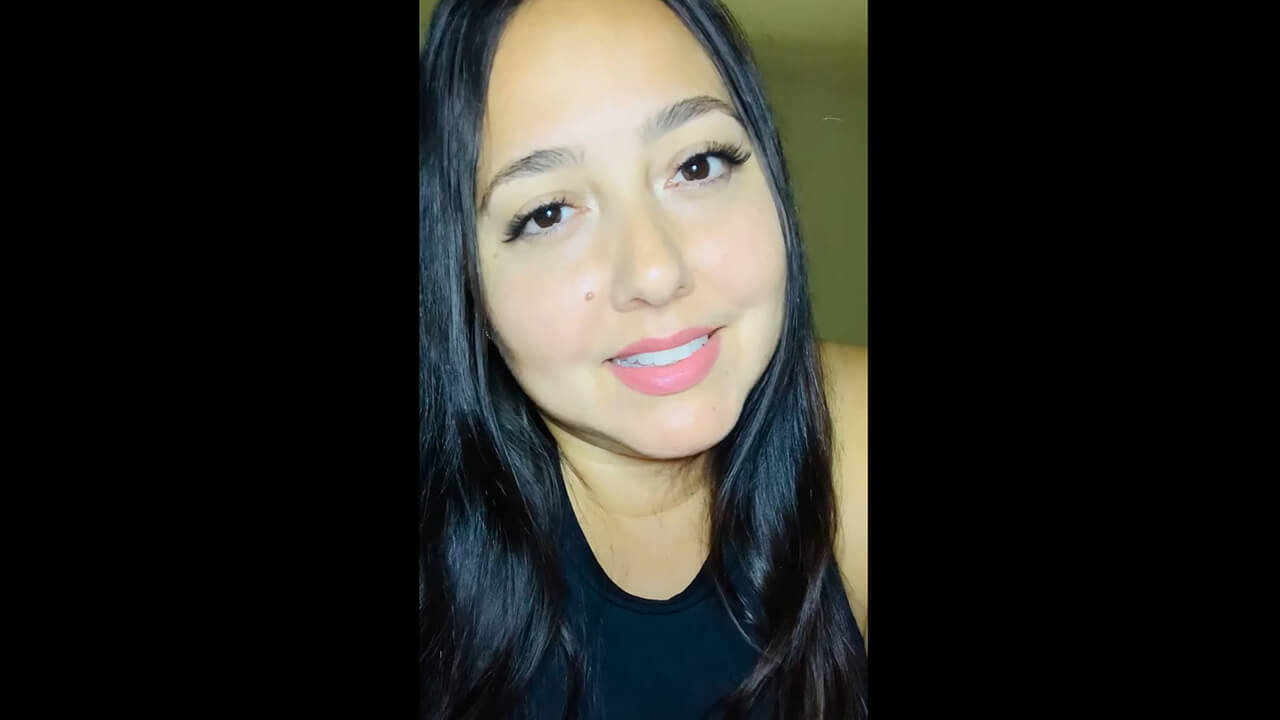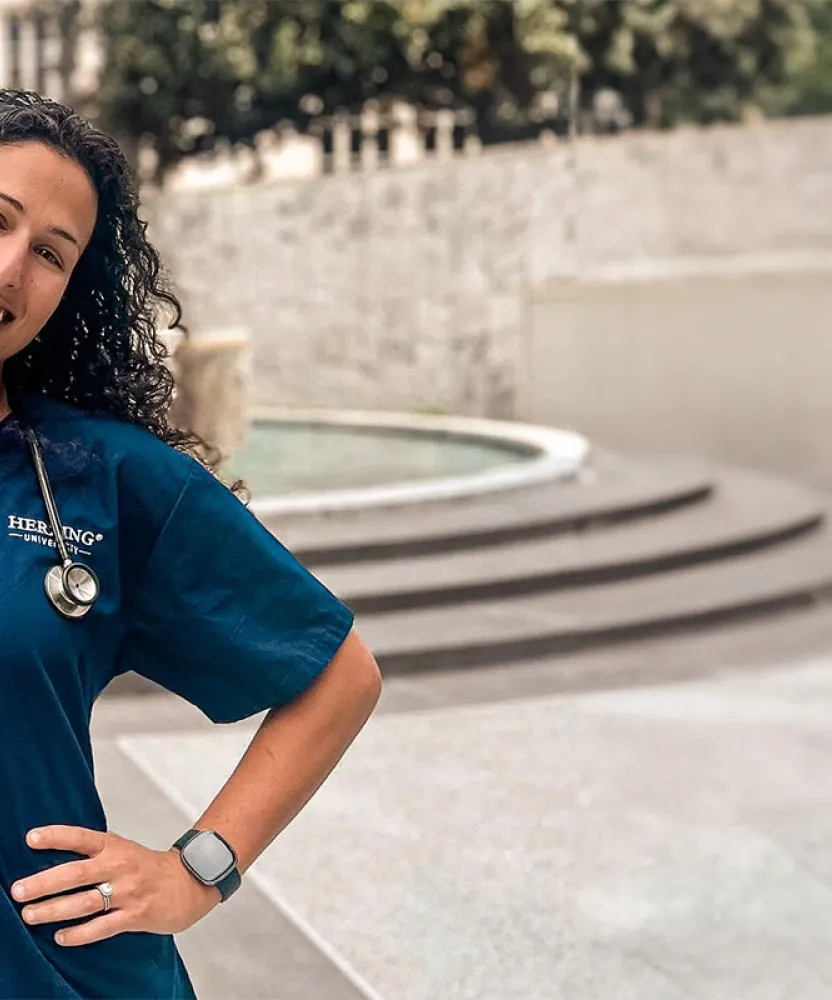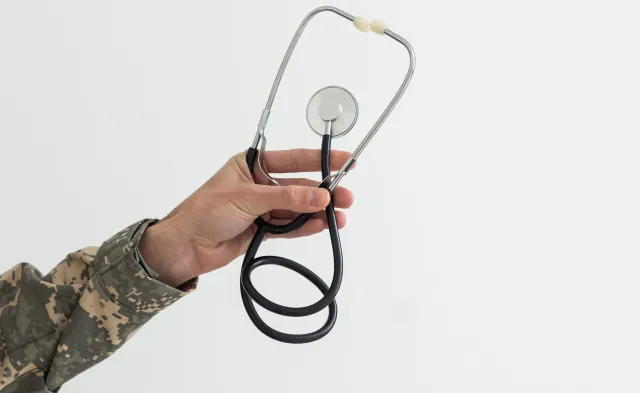Earn a PN diploma in Birmingham and become possible
| Accreditation | Accredited by the Higher Learning Commission |
|---|---|
| Transfer credit | Up to 27 approved credits |
| Format | Online general education classes + core on-campus courses at our Birmingham, Alabama campus |
| Pathways | Pathways to further your nursing education (ASN, BSN, MSN) |
| QuickPaths | Transfer credit, stackable credentials, and adaptive learning technology build a faster pathway to a higher education with Herzing University |
Learn More Today!
Practical Nursing Diploma Program - Birmingham, AL
The Diploma in Practical Nursing is a 48-credit career diploma program which prepares you to register/apply to the Board of Nursing for clearance. If approved, the graduates can apply to sit for the NCLEX-PN.
The Birmingham campus program provides students with fundamental knowledge and skills in patient assessment, medical-surgical nursing, maternal and child nursing, mental health nursing, and much more.
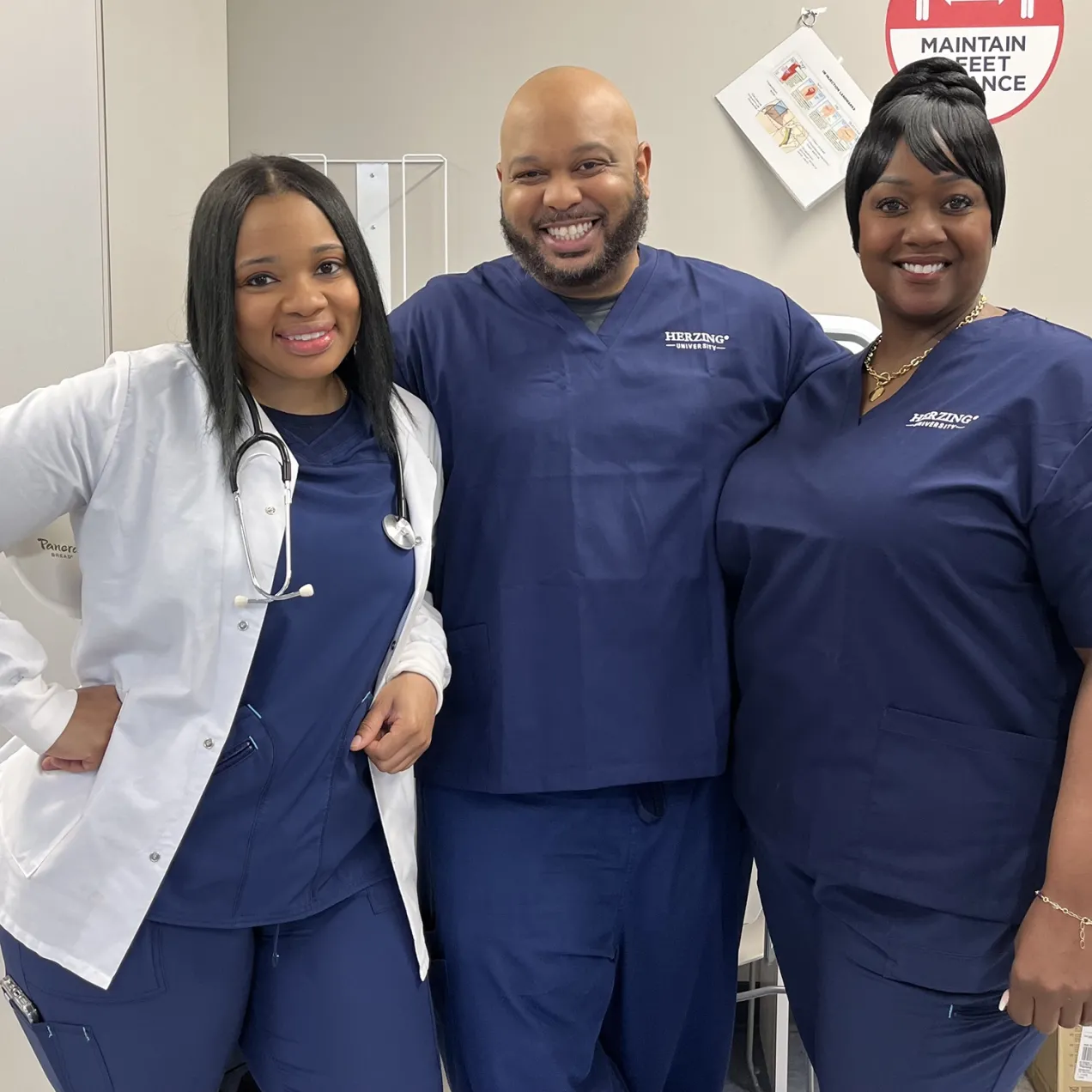
Career-focused curriculum
Discover the crucial knowledge and skills required to succeed in your work and build a foundation for continued career growth.
Flexible schedule
We work hard to help you maintain school-life balance, striving to be as flexible as possible for busy non-traditional students.
Virtual services
Access to extensive virtual services, including academic advising, tutoring, support services, technical support and library services.
Lifelong support
We support your ongoing career advancement by providing comprehensive, personalized student services with lifelong career coaching.
Rolling admissions
No application deadlines to worry about. Apply when you’re ready and prepare to get started soon.
What you'll learn in the Herzing University PN diploma program
The practical nursing program at Herzing University in Birmingham, Alabama provides theoretical, academic and clinical instruction in many different types of nursing to bridge the patient lifespan: including surgical, obstetric, pediatric, geriatric, and mental health.
Over the course of the program, you will learn the basics of nursing procedures, measuring vital signs, administering medication, and develop communication skills necessary to easily collaborate with other healthcare providers.
Most courses are delivered on-campus in Birmingham; you may complete general education courses online.
| Program | Months i | Credit |
|---|---|---|
| Diploma in Practical Nursing | 12 | 48 |
Average number of months for students to complete program
Required Courses
All courses, 40.00 semester credit hours, are required.
Required General Education Courses
Both courses, 6.00 semester credit hours, are required.
The following general education course must be completed with a grade of "C" (70%) or better for a student to continue in the nursing program.
Nursing Program Support Courses
3.00 semester credit hours are required. The following nursing support course must be completed with a grade of "B" (80%) or better. Only two attempts are permitted for each course and a student who fails to successfully complete in the maximum attempts is subject to dismissal from the nursing program.
Personal and Professional Development Courses
2.00 semester credit hours are required.
Distribution of Contact Hours by Course
Distribution of Contact Hours by Course Course Lecture Lab Clinical Total Contact Hours Credits EN 104 45.00 0.00 0.00 45.00 3.00 MA 109 45.00 0.00 0.00 45.00 3.00 SC 144 45.00 30.00 0.00 75.00 4.00 PN 108 75.00 30.00 0.00 105.00 6.00 PN 109 0.00 0.00 45.00 45.00 1.00 PN 111 0.00 45.00 0.00 45.00 1.50 PN 112 22.50 0.00 0.00 22.50 1.50 PN 212 90.00 0.00 0.00 90.00 6.00 PN 213 0.00 0.00 90.00 90.00 2.00 PN 222 45.00 0.00 0.00 45.00 3.00 PN 223 0.00 0.00 45.00 45.00 1.00 PN 228 60.00 0.00 0.00 60.00 4.00 PN 229 0.00 0.00 135.00 135.00 3.00 PN 246 30.00 0.00 0.00 30.00 2.00 PN 247 0.00 0.00 45.00 45.00 1.00 PN 255 60.00 0.00 0.00 60.00 4.00 Personal/Professional Development 30.00 0.00 0.00 30.00 2.00 Totals 547.50 105.00 360.00 1012.50 48.00
Enrollment requirements
To be considered for admission into the Practical Nursing program, you must hold a high school diploma or equivalent (Diploma, HSED or GED) and meet the following criteria based on your cumulative GPA:
| Cumulative GPAi | Science Requirement | TEAS ii |
|---|---|---|
| 3.50–4.00 | None | None |
| 3.00–3.49 | "B" or better in Anatomy & Physiologyiii | None |
| 2.00 and higher | None | Composite TEAS of 48 |
i. Students with 18 or more transferable collegiate credits will be assessed on their collegiate cumulative GPA. Otherwise, the high school GPA will be used.
ii. The Test of Essential Academic Skills (TEAS) from the Assessment Technology Institute (ATI).
iii. Students in the 3.00-3.49 GPA range who do not meet this requirement must earn a composite score of 48 on the TEAS.
Waived Enrollment Fee
Discover the educational pathway designed to maximize your career potential. Reach for greater heights with Herzing University.
Enrolling in a PN program is step #1 to starting your new career
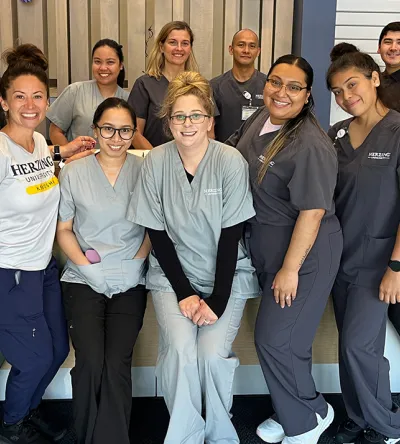
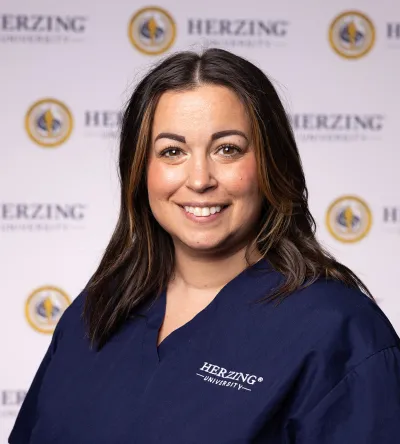
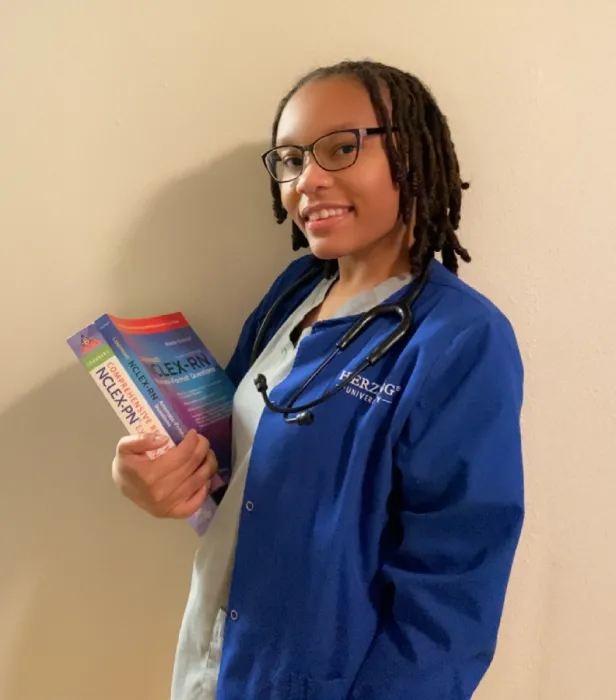
Becoming a Licensed Practical Nurse happens in 4 steps:
- Enroll in the Herzing University practical nursing program
- Graduate and get your PN diploma
- Take and pass the NCLEX-PN to get licensed
- Find your first job!
How long does it take to become an LPN?
The Herzing University PN program can take as little as 12 months to complete. After your training and earning your PN diploma, all that’s left for you is passing the NCLEX-PN exam to become a Licensed Practical Nurse in the state of Alabama.
I want to become a registered nurse (RN). Do I need more than a diploma in practical nursing?
Yes—you’ll need at least an associate’s degree in nursing to become a registered nurse, although we encourage you to pursue a bachelor's degree if you’re serious about becoming an RN. Hospitals and medical facilities are more often recommending or outright requiring nurses to earn their BSN degree.
Faq
Frequently Asked Questions
Didn't find the answer to your question? Send us an inquiry and we will be happy to answer all your questions!
According to the Bureau of Labor Statistics, licensed practical and licensed vocational nurses earn an average salary of $60,790 per year ($29.23 per hour).* Discover the average salary for a licensed practical nurse broken down by state.
Although the majority of LPNs work in nursing homes, retirement communities or assisted living facilities, many LPNs work in:
- Physician's offices
- Hospitals
- Colleges
- Insurance carriers
- Home care
- Community food and housing
You can see a full industry profile for Licensed Practical Nurses from the Bureau of Labor Statistics.
PN program coursework is meant to be challenging, but not impossible. As a Herzing student you’ll find support every step of the way, from faculty, staff, instructors and other students enrolled in the program. You’re never alone—and never be afraid to ask for help when you need it!
Learn more about how hard nursing school is at Herzing University, and read some testimonials from former students describing their experience.
No, there are no accredited PN programs that are 100% online. LPN programs describing themselves as “online” will offer a hybrid option where you can take some classes online to supplement your primary classroom coursework.
Students enrolled in the Herzing PN program may complete general education courses online—but the bulk of the coursework must be completed on campus.
Ultimately there is no replacement for real hands-on clinical experience, practice in simulation labs and direct in-person support from nursing instructors with real healthcare experience. Learning the skills required to become an LPN requires the live educational experience to become an excellent Licensed Practical Nurse.
You may find some programs offering 6 month or 9 month paths to a PN diploma to become an LPN. Be mindful that accelerated diploma/degree programs aren’t for everyone and such a fast track can be overwhelming. If you’re considering a few months’ difference in time as a tipping point in your decision, remember the quality of your education is most important!
Herzing University’s 1-year PN diploma program gets you an excellent hands-on education in a short amount of time. You’ll learn the foundational concepts and skills in nursing needed to excel in your new career as an LPN.
While Registered Nurses (RN) and Licensed Practical Nurses (LPN) often work together in collaboration in hospitals and other healthcare facilities, their roles and responsibilities are very different. Learn more about the biggest differences between practical nurses (LPN/LVN) and registered nurses (RN).
Potential employers may prefer a candidate with experience as a CNA, but it’s not necessarily a requirement for getting a job as an LPN (same goes for going from CNA to RN).
You aren't required to go from CNA to LPN and there is no prerequisite to be a CNA before enrolling in the Herzing University PN program.
Because many hospitals are upping their educational requirements for nurses in general, the demand for LPNs in hospitals is falling relative to registered nurses with an associate’s or bachelor’s degree.
However, any claim they are being “phased out” isn’t accurate. LPNs remain in demand in nursing homes, assisted living facilities, home care and many other environments. The Bureau of Labor Statistics predicts job opportunities for LPNs will rise approximately 5% from 2022-2032.*
The landscape is changing, but LPNs remain a vital contributor in the nursing community.
Considering a career as an LPN?
Your first step is to get a hands-on education to learn the fundamentals of nursing in a career-focused program. Herzing University's practical nursing program combines classwork with clinical experiences to help you earn your diploma and prepare you to become an LPN in as few as 12 months. Our program is available at several of our ground campuses:
Quite simply, yes! A PN diploma and a job as a LPN is a great way to quickly get involved in the nursing profession and get a better feel for what it means to be a nurse. Earning your diploma helps get you into a career with above average pay, and can springboard you into the next level of nursing education should you choose to continue advancing your education and career.
We can help you come to a better determination. Send us a request for more information and we can answer any questions you have about the PN program, and discuss how beneficial it can be for you to become a LPN.
While practical nurses (LPN) and medical assistants often perform similar tasks, there are a few key differences to be aware of, including:
- Educational requirements
- Average salary
- Scope of practice
- Ongoing career opportunities
- Future outlook for jobs
Learn more about the difference between practical nursing and medical assisting and how to go from MA to LPN.
The Student Experience at Herzing
Herzing helped me complete my program by constantly encouraging me and offering tutoring when needed.
Theresa P. Jones
Nursing Student | Birmingham CampusThe support I received from the staff at Herzing University during my toughest moments reinforced my determination to succeed, not just for myself, but to set an example of resilience for my children.
Rayisha Moore
Nursing Student | Brookfield/Milwaukee CampusThough nursing school is tough and there will be a time that you want to give up, don't! It's all worth it in the end!
Danielle Baldwin
Nursing Student | Kenosha CampusI chose to enroll at Herzing University because I have a passion for nursing and I knew that it was the right career for me.
LaTasha Carr
Nursing Student | Birmingham CampusI’m amazed at how quickly things went by – I’m already done!
Eileen Saint-fleur
Nursing Student | Orlando CampusAccreditation & Disclosures
1. The Practical Nursing program at Herzing University – Birmingham located in Birmingham, Alabama is accredited by the:
Accreditation Commission for Education in Nursing (ACEN)
3390 Peachtree Road NE, Suite 1400 ǀ Atlanta, GA 30326
(404) 975-5000
The most recent accreditation decision made by the ACEN Board of Commissioners for the Practical Nursing program is Initial Accreditation. View the public information disclosed by the ACEN regarding this program at https://www.acenursing.org/search-programs.
The Diploma in Practical Nursing program at Herzing University-Birmingham is approved by the Alabama Board of Nursing (RSA Plaza, 770 Washington Avenue, Suite 250, Montgomery, Alabama, 36104, 334-293-5200, www.abn.alabama.gov). Upon completion of the program, graduates are eligible to apply to the State Board of Nursing to sit for the National Council of State Boards of Nursing (NCLEX-PN) licensing exam.
Herzing University is accredited by the Higher Learning Commission (hlcommission.org), an institutional accreditation agency recognized by the U.S. Department of Education.
View Herzing University Accreditation and Approvals
* Bureau of Labor Statistics (BLS), U.S. Department of Labor, Occupational Employment and Wage Statistics 2023 / Occupational Outlook Handbook 2022. BLS estimates do not represent entry-level wages and/or salaries. Multiple factors, including prior experience, age, geography market in which you want to work and degree field, will affect career outcomes and earnings. Herzing neither represents that its graduates will earn the average salaries calculated by BLS for a particular job nor guarantees that graduation from its program will result in a job, promotion, salary increase or other career growth.
2023 Calendar Year
| Campus | NCLEX® Pass Ratei | Completion Rate | Completion Rate 150% |
|---|---|---|---|
| Akron | 85.71% | 30.51% | 32.20% |
| Birmingham | 100.00% | 15.97% | 18.49% |
| Brookfield | 82.81% | 29.46% | 32.14% |
| Kenosha | 84.44% | 29.31% | 31.90% |
| Madison | 100.00% | 36.11% | 38.89% |
| Nashvilleii | N/A | N/A | N/A |
| Orlando | 85.71% | 23.08% | 28.21% |
| Tampa | 100.00% | 25.94% | 28.44% |
iNCLEX® pass rates reflect the rates as published by the respective board of nursing. iiThe Nashville Campus will not graduate their first cohort of PN students until 2024. | |||
Recent Blog Posts
Waived Enrollment Fee
Discover the educational pathway designed to maximize your career potential. Reach for greater heights with Herzing University.

